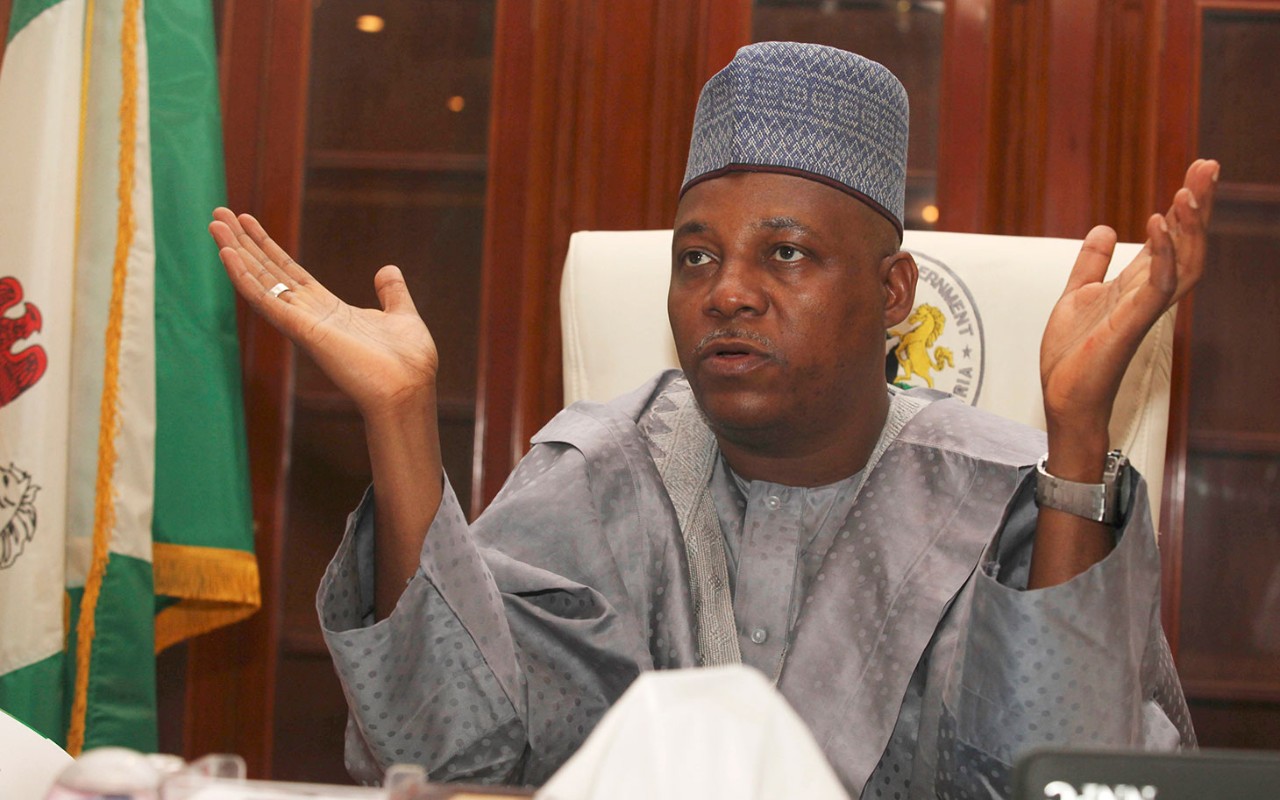The United States Government has indicted the Kashim Shettima-led Borno Government for supporting a group which is actively involved in the recruitment of child soldiers in the fight against the Boko Haram insurgency in the North Eastern region of Nigeria.
The report, 2015 Trafficking in Persons Report, presented on Monday, July 28, 2015 by United States Secretary of State, John Kerry shows that Nigeria has not achieved much in its effort to combat human trafficking across the country’s borders. It indicts the Nigerian government for not fully complying with the minimum standards for the elimination of trafficking.
According to the US government, while the Federal Government makes effort to combat human trafficking and servitude, the Borno Government ”actively supports the recruitment of child soldiers in the last one year” by the Civilian Joint Task Force (CJTF).

The CJTF is a local vigilante group assisting Nigerian troops in the war against the Boko Haram insurgency.
The report notes that Governor Shettima had “warned the CJTF that the recruitment and use of child soldiers was prohibited”. But, the governor also went on to give state support for the group which continued in the practice of recruiting child soldiers.
The US slammed for Borno Government for its support for the CJTF over the use of child soldiers, saying that Shettima’s government continued to give “financial and in-kind resources” to the vigilante group.
The report, which is produced by the United States Department of State recommends that the government should cease all kinds of support for the Civilian JTF until the group stops the recruitment and use of children. It also recommends that the government should investigate and prosecute all individuals involved in the act of using using child soldiers, as well as other trafficking abuses against women and children.
The US government commended the Goodluck Jonathan-led government for its efforts at combating child trafficking saying, “The government maintained strong anti-trafficking law enforcement efforts. In March 2015, the government passed amendments to the 2003 Trafficking in Persons Law Enforcement and Administration Act, which increase the penalties for trafficking offenders.”
“The law prohibits all forms of trafficking. It prescribes a minimum penalty of five years’ imprisonment and a minimum fine of one million naira ($5,470) for labor trafficking offenses. The law prescribes a minimum penalty of five years’ imprisonment for sex trafficking offenses and a minimum fine of one million naira ($5,470); the minimum penalty increases to seven years’ imprisonment if the case involves a child. These penalties are sufficiently stringent and commensurate with other serious crimes, such as rape.”
“Nigeria is a source, transit, and destination country for women and children subjected to forced labor and sex trafficking. Nigerian trafficking victims are recruited from rural and, to a lesser extent, urban areas: women and girls for domestic servitude and sex trafficking and boys for forced labor in street vending, domestic service, mining, stone quarrying, agriculture, textiles manufacturing, and begging,” the report submits.
“Young boys in Koranic schools, commonly known as Almajiri children, are subjected to forced begging. Nigerian women and children are taken from Nigeria to other West and Central African countries, as well as to South Africa, where they are exploited for the same purposes.
Nigerian women and girls are subjected to forced prostitution throughout Europe. Nigerian women and children are also recruited and transported to destinations in North Africa, the Middle East, and Central Asia, where they are held captive in the sex trade or in forced labor.”
In the report, Nigeria retained the same Tier Two ranking it got in 2014.
Governor Shettima was on President Muhammadu Buhari’s entourage on his 4-day visit to the United States last week. He also attended Buhari’s talks with President Barack Obama and the US Secretary of State, John Kerry.







